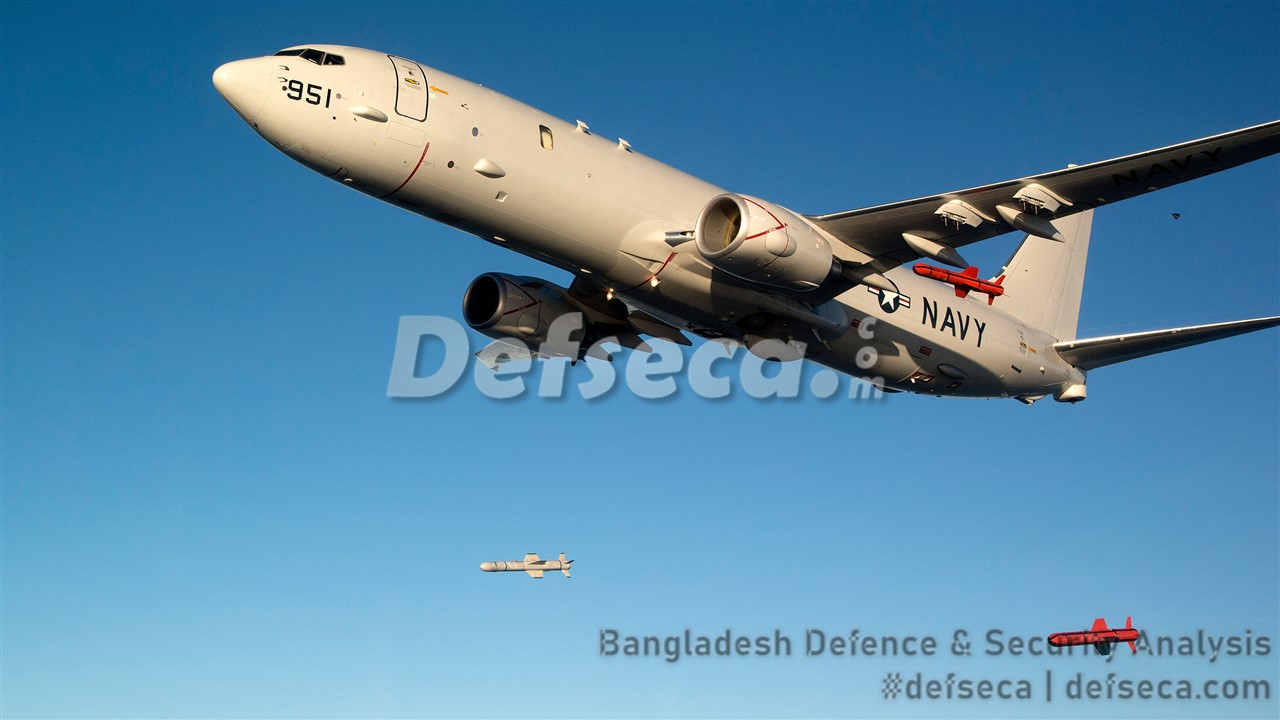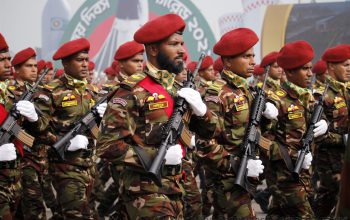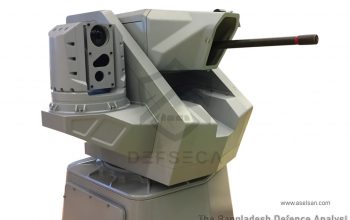The US Navy has proposed joint patrols with the Bangladesh Navy in an unprecedented move that illustrates America’s growing interest with Bangladesh and the region.
The US Government has pressed its Bangladeshi counterparts to sign two foundational military agreements which will pave the way for US defence equipment manufacturing companies to supply hi-tech weaponry to the Bangladesh Armed Forces.
The Bangladesh Armed Forces is expanding its manpower and acquiring more sophisticated weaponry from Western countries. This has caught the interest of American’s as they feel it opens up a new market for American made military gear in rising Bangladesh.
Bangladesh has initially showed an interest to purchase AH-64 attack helicopters, long range air surveillance radar and communications equipment from the American companies such as Boeing and Harris Corporation.
Unofficially the Americans hinted their willingness to sell F-16’s and F/A-18 multi-role combat aircraft to the Bangladesh Air Force. The advances towards Bangladesh Air Force is particularly telling given the US side had repeatedly declined to sell combat aircraft to the Bangladesh Air Force from the mid-70’s up until now. It is also the primary reason why today the Bangladesh Air Force is mainly equipped with a combination of Chinese and Russian combat aircraft when in fact it had wanted to purchase Italian and American combat aircraft from the onset.
Critics of the United States view the recent good will showed by the US Administration believe it is part of an Indo-American strategy to steal away Bangladesh from China’s strategic orbit.
That may be true in some respects but even the Americans know such a process is a long drawn out affair given the vast majority of the Bangladesh Armed Forces are equipped with Chinese, Russian and Eastern European armaments.
The Bangladesh military itself has started procuring a lot more NATO or Western origin defence hardware over the last decade. This is due to a number of factors including appropriate budgetary support, improved relations with Western nations, increased military to military interactions with NATO forces, standardisation of military equipment and knowledge that potential enemies would never have access to the same military gear.
The Myanmar-created Rohingya crisis has spilt over to Bangladesh. It is unlikely the problem will be resolved in the near future without leading to conflict unless further productive headway is made by Myanmar is retaking their nationals from Bangladesh.
Bangladesh’s armed forces are having to prepare accordingly to encounter any eventualities that may come about as a result of the threat from Myanmar.
To Bangladesh, Myanmar is not a military threat in a classic sense. It however has shown the potential to foment violence in the region against its own population that has regional impact from third party factors such as militants, foreign aid groups, missionaries, international criminal organisations and foreign intelligence agencies who may use opportunities to destabilise Bangladesh.
Both Bangladesh and China understand it is important to maintain peace at a regional level. The countries have joined hands to ensure Myanmar takes back its people without further delay. China itself is weary at a long drawn out process as it believes it will invite American intervention in the region and therefore have a lasting impact on China’s security ambitions.
Bangladesh’s problems are not it’s alone. With success comes a price. Bangladesh will have to tread carefully to get the most out of its security cooperation with both China and the US whilst ensuring there is a deterrence capability in reserve to counter any military threats posed by neighbouring countries. Unsurprisingly the Bangladesh Armed Forces have not responded to requests for joint patrols with the mighty US Navy but instead opted to strengthen their own naval capabilities as a sovereign nation should in its own right.




